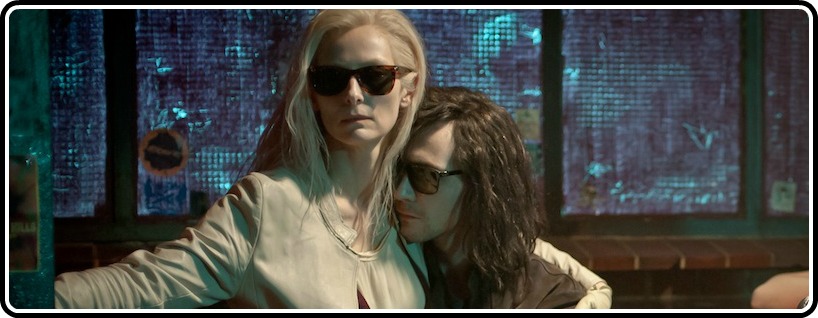
I’m not the biggest Jim Jarmusch guy. I’ve seen a few of his films here and there, but a lot of it didn’t really seem to resonate with me after those initial viewings. Nothing resonating is just my relative personal hang-up I suppose, but when you think of cult directors I’m sure the first person to pop into your head would be Jim Jarmusch. People love the guy, and yet through eleven feature films his only real brush with mainstream success was probably 2005’s Broken Flowers, starring Bill Murray in his post-Lost in Translation / Life Aquatic phase. It’s painfully obvious though that mavericks like Jim Jarmusch don’t really want anything to do with the mainstream, and his success is admirably measured by his own sense of accomplishment in the moment until he’s onto the next thing. Even if he isn’t my favorite, that’s what I admire most about Jarmusch, that he’ll continue to do weird personal stories that resonate or not with audiences who nevertheless have to admit that he does what he wants. He is an uncompromising eccentric to the core and he exhibits a deceptively simple characteristic that’s mostly lost nowadays: he’s unique.
His new film entitled Only Lovers Left Alive is a—you guessed it—unique take on the time-honored vampire genre, though you won’t find any teeny-bopper kids fawning over each other and running away from werewolves in the pacific northwest here. Instead we have Tom Hiddleston and Tilda Swinton as a centuries-old vampire couple using their immortal wisdom—or lack thereof—to come to terms with living in the modern world, and making it look damn good too.
Hiddleston’s Adam lives under the guise of a reclusive rockstar who spends nights on end composing droning guitar tunes in his house in Detroit full of vintage instruments and analog soundboards. Occasionally a painfully awkward human burnout named Ian (played with an oblivious joy by Anton Yelchin) stops by to get Adam whatever he wants, but Adam still yearns for more, to be truly alive. His appropriately named companion Eve (played by the absolutely radiant Tilda Swinton), on the other hand, has been living the nocturnal life in Tangier, Morocco away from Western vices along with their mutual friend, the rakish Christopher Marlowe (the man behind the possible Shakespeare nom de plume played by John Hurt is just one of the film’s kitschy comedic connections to history). When she senses all is not well with her blood-sucking counterpart she hops on a plane to the Motor City to laze about while contemplating eternal life’s foibles on everything from Einstein’s “spooky action at a distance” to whether Stax is better than Motown.
Like many Jarmusch films, not much happens in terms of plot, yet the interactions and wryly-comedic banter between the characters— primarily tied to the cool-cat nucleus of the effortlessly sexy chemistry between Hiddleston and Swinton, whose relationship we truly believe has been going for hundreds of years—is where the film really shines. Occasionally amusing asides are thrown in for good measure, including scenes between Hiddleston and a Doctor played by Geoffrey Wright who cuts a deal with the vampire to provide him with fresh blood from his hospital’s supply as well as some droll commentary with Swinton on the socio-economic legacy of Detroit as a dead city, but the main antagonistic force arrives in the form of Eve’s younger sister Ava who is also a vampire (played with the right amount of annoying and ironic teenage ambivalence by Mia Wasikowska). As we glean from Adam’s complaining, Ava tends to show up as quickly as she disappears every century or so to mess up the pair’s potential tranquility, which she does once again, upending the two vampires again until the film’s end.
If only for the “I’ve never really seen anything like this” factor, Only Lovers Left Alive’s weirdo vampire love story pleasantly succeeds. It’s suffused with a killer soundtrack of old rock and soul songs, and rounded out by the brooding hum of music by SQÜRL, Jarmusch’s own band. Its deadpan humor is balanced by its themes of mourning past memories in the face of an uncertain future, but it’s never weighed down by the narrative burden that such impressionistic matters suggest. It’s an oddly perfect combination for someone as unique as Jarmusch, and a pretty great film to boot.


